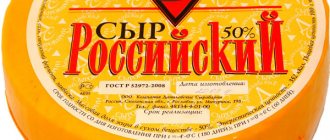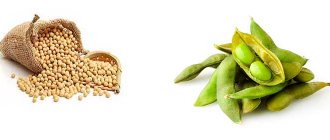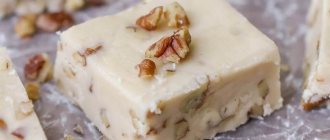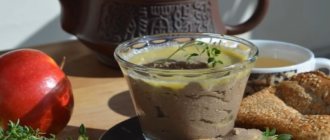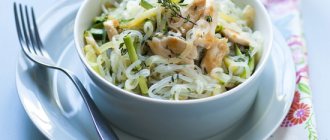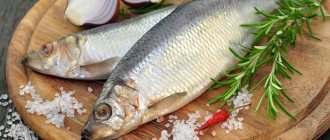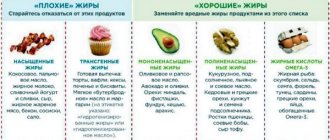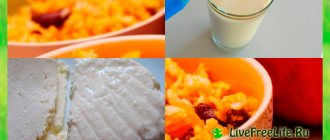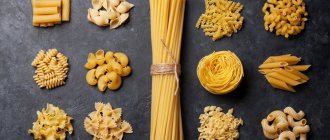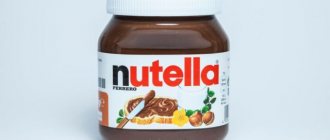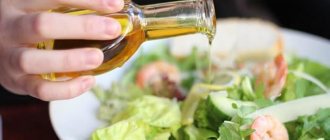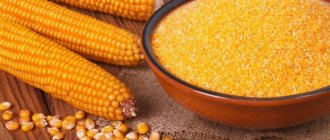What is vegetable fat
The category of such oils usually includes fats of vegetable origin. The extract consists of triglycerides of fatty acids in combination with associated substances (free fatty acids, waxes, sterols, phospholipids, etc.). Oilseeds, which are used to obtain oils, are divided into 4 groups:
- oilseed seeds: flax, soybean, sesame, rapeseed, black cumin, milk thistle, mustard, hemp, poppy, sunflower, cotton;
- fruits of oilseeds: olives, palms;
- waste from processing raw materials containing oils: fruit seeds of grapes, apricots, cherries, as well as seeds of watermelon, pumpkin, sea buckthorn, melon, tomatoes, wheat germ, rice, corn;
- nuts: almonds, coconut, hazelnuts, walnuts, Brazilian, pine, pecan, macadamia.
The process of obtaining vegetable fats is relatively simple, so they can be produced even at home. During the industrial cycle, useful elements are lost in parallel with the removal of excess and harmful impurities. All vegetable fats are divided into 3 groups according to their saturation with acids (plants can belong to different types from the classification above):
- Saturated (solid). They have a dense structure, are extremely poorly digested and settle inside the body. These include palm oil, coconut oil, cocoa oil (this also includes all animal oils).
- Monosaturated liquid (oleic acid, omega-9). Peanut, olive, rapeseed, almond, avocado are useful for diabetes and cancer.
- Polyunsaturated (monounsaturated) liquid (omega-3, omega-6) - are not produced by the body, but their consumption has a beneficial effect on the body. Such oils include sunflower, corn, flaxseed, soybean, etc.
Fatty fish
One of the few animal products whose benefits scientists tirelessly talk about is fatty fish. Fatty fish include salmon, trout, mackerel, sardines and herring (for a complete list of sea, river and lake fatty fish, see Fatty Fish: List, Health Benefits).
This fish is rich in cardiovascular-healthy omega-3 fatty acids, high-quality proteins, and all sorts of important nutrients.
Research shows that people who eat fish tend to be much healthier, and have a significantly lower risk of developing heart disease, depression, dementia, and all types of common diseases (26, 27, 28).
If you can't (or don't want to) eat fish, then taking fish oil may be beneficial for your body. Cod liver fish oil is the best - it contains all the omega-3 fatty acids you need, as well as large amounts of vitamin D.
Summary:
Fatty fish such as salmon, mackerel and herring are rich in important nutrients, especially omega-3 fatty acids. Eating fatty fish is associated with improved health and a reduced risk of developing all types of diseases.
Manufacturing
In fact, there are two ways to obtain vegetable fats: pressing and extraction. Industrial volumes and sanitary standards require a long, multi-stage cycle, during which most oils lose their natural value. This is due to the fact that by removing harmful components, it is impossible to separate them from beneficial substances. Because of this, there is constant debate about what type of production and what degree of purification is most beneficial. A simplified production cycle looks like this:
- Processing and purification of raw materials. Grain products are cleaned of debris, husks, and leaves. The hard inner kernels are crushed and fried to a certain degree. For soft fruits (for example, olives), only grinding is used.
- Oil release. When using mechanical extraction, the entire process consists of applying pressure to the raw material mass until the oil is released. For extraction, a special solvent is used, which is mixed with the raw material. After some time it is pumped out. Further operations are specific to each individual crop. The resulting product can already be eaten, but the taste and smell are far from store standards.
- Filtration and settling. For example, for olive oil, this is the last stage of production.
- Refining – removal of mineral and organic substances. The procedure is aimed at improving the taste and technological qualities of the oil. At the same time, refining removes many beneficial vitamins, minerals, phosphatides, and fatty acids. At the same time, oil hydration occurs.
Compound
The composition of vegetable fat directly depends on the source plant. The composition contains mandatory components that form the oil structure of the product. The main thing that needs to be mentioned is: do not believe advertising and branding that claims to remove cholesterol from the product, because it is not found in vegetable oils.
The saturation of natural non-animal fats with vitamins and microelements after the production cycle is artificial. The basic composition of any vegetable oil looks like this:
- unsaturated fatty acids: butyric, caproic, caprylic, decenoic, lauric, myristic, palmitic, stearic, linoleic, nervonic, arachidic, etc.;
- wax;
- phospholipids;
- sterols;
- glycerol;
- vitamins, minerals, microelements.
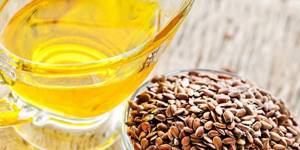
The nutritional value
Although nutritionists widely claim that vegetable fats are healthier than animal fats, you need to remember about the calorie content. The average number of calories per 100 grams is 900 kcal, with fats making up about 98% of the total mass of the substance. This means that valuable beneficial elements, vitamins, etc. – less than 1.5%, the rest are neutral binding components. Nutritional value is an indicator that directly depends on the melting point of the product. The lower this indicator, the better the fat is absorbed.
Refined deodorized vegetable oil is mineralized and fortified artificially, because after refining, everything useful is also lost. This does not prevent vegetable fats from being the main supplier of vitamins (for example, group E), microelements, polyunsaturated fatty acids, which are absolutely important for the body).
| № | Type of vegetable oil | Vitamin E, mg/100 g. | Vitamin K, mg/100 g. | Zinc, mg/100 g. | Phosphorus, mg/100 g. | Iron, mg/100 g. |
| 1 | Rapeseed | 18,9 | — | — | 2 | — |
| 2 | Peanut | 15,7 | — | 0,01 | 2 | — |
| 3 | Coconut | 0,09 | 0.5 mcg | — | — | 0,04 |
| 4 | Sunflower | 44 | — | — | 2 | — |
| 5 | Linen | 2,1 | — | — | 2 | — |
| 6 | Olive | 14 | 62 mcg | — | — | 0,4 |
| 7 | Soy | 17 | — | — | 2 | — |
| 8 | Corn | 18,6 | — | — | 2 | — |
| 9 | Palm | 33 | — | — | 2 | — |
How to regulate fat intake in the body
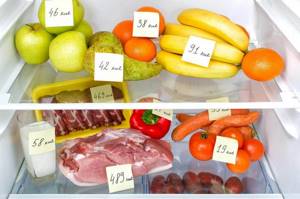
We found out that completely giving up fat is not an option, but what to do if your intake significantly exceeds the permissible limit? Don't forget that 1 gram of fat contains 9 kcal, so going over the daily dosage is much easier than it might seem. To regulate your intake of healthy fats, use a few simple tips.
The daily dosage of fats should be determined individually, based on weight, height, age, gender, body characteristics and goals.
Nutritionists say that the concentration of fats in the diet should be at least 30% of the individual KBJU. The ratio of saturated to unsaturated fats should be 1:2, respectively. Also, don't forget about your cholesterol levels. For a healthy adult, the daily norm of the component should not exceed 300 milligrams (for patients with pathologies of the cardiovascular system, this figure is reduced).
Introduce snacks into your diet
Between the three main meals, a person will inevitably get hungry. It is the feeling of hunger that leads to uncontrolled overeating, unnecessary purchases and, as a result, health problems. Make your snacks healthy - prepare rye bread sandwiches, vegetable or fruit salads, vegan snacks (hummus/guacamole).
Replace familiar products with natural ones
Instead of foods containing large amounts of saturated and especially trans fats, it is better to use eggs for breakfast, add corn starch or half a ripe banana to the porridge. Animal products can be replaced with dates, cashews and other plant-based alternatives.
Avoid oil dressing
A salad based on vegetables and oil is one of the favorite delicacies of post-Soviet people. For dressing vegetables, regular lemon juice, Dijon or traditional mustard, sour cream, natural dry herbs or spices are perfect, or use olive oil in a small amount as an oil dressing.
If your salad contains seeds, nuts or avocado, then the need for an oily dressing automatically disappears. You will get the necessary healthy fat from the salad components themselves.
Best materials of the month
- Coronaviruses: SARS-CoV-2 (COVID-19)
- Antibiotics for the prevention and treatment of COVID-19: how effective are they?
- The most common "office" diseases
- Does vodka kill coronavirus?
- How to stay alive on our roads?
Change the way you cook
Stop frying in oil and start using a steamer, oven or microwave more often. Baking or steaming requires absolutely no oil, and the products turn out tender and juicy. Moreover, you will retain most of the beneficial nutrients and vitamins in the food. Start using your blender more often. With its help you can prepare soups, vegetable purees and smoothies without a single drop of fat.
Kinds
Vegetable fats are usually divided into those containing saturated and unsaturated acids. The first include stearic and palmic. A large concentration of such fats leads to the production of bad cholesterol and the formation of plaques on the walls of blood vessels. Once accumulated, this leads to the development of atherosclerosis. Most saturated acids are found in solid oils (palm, coconut, etc.).
Vegetable oils with a high content of unsaturated fatty acids (linolan, arachidonic, docosahexaenoic) are considered to be most beneficial for health when consumed correctly. Their lack causes negative effects from dry skin to slow growth in children, impaired vision, etc. These acids are found in large quantities in nuts, liquid vegetable oils, and pumpkin seeds.
Chia seeds
Chia seeds are not typically thought of as a "fatty" food. However, 100 grams of chia seeds contain 31 grams of healthy fats. Considering that almost all of the carbohydrates in chia seeds are fiber, the majority of their calories (80%) actually come from fat. This makes them an excellent fatty plant food.
And it's not just any fat—most of the fat in chia seeds is a healthy omega-3 fatty acid called alpha-linolenic acid (ALA).
Chia seeds also have numerous beneficial properties that help lower blood pressure and reduce inflammation in the body (39, 40).
They are also incredibly nutritious. In addition to being rich in dietary fiber and omega-3 fatty acids, chia seeds are also rich in minerals.
Summary:
Chia seeds are very rich in healthy fats, especially an omega-3 fatty acid called ALA. They are also high in fiber and minerals and have numerous health benefits.
Harm and benefit
In a simplified sense, fat is the main source of energy for the body (80% of human energy reserves). Vegetable oil contains various acids, phytosterols, and phospholipids, which are absolutely important for normal metabolism. Nutritionists strongly recommend completely abandoning solid and animal fats, because vegetable oil has more beneficial properties:
- polyunsaturated acids omega-6 and omega-3 are not produced by the human body, but are vital for health (prevent blood clots and increased blood pressure);
- vegetable oil stimulates tissue regeneration;
- natural first cold-pressed oils - suppliers of large amounts of vitamin E, which has a positive effect on the condition of the skin;
- vegetable fats are minimally involved in the formation of bad cholesterol, which provokes atherosclerosis;
- metabolic processes are accelerated;
- blood composition normalizes;
- proper nutrition, balancing the vegetable and meat components in the diet, promotes weight loss;
- the immune system is strengthened;
- a strong cell membrane is formed;
- heart function is normalized;
- the strength and elasticity of blood vessels increases;
- retinol and similar substances protect the body from radiation exposure, reduce the risk of cancer, diabetes, and activate protein synthesis.
It is impossible to unambiguously determine the harmfulness of fats, since the negative effect directly depends on the amount consumed and the method of processing the oil. Such a product can also be harmful if you use it exclusively, completely abandoning animal lard. A cheap product of plant origin, with fanatical adherence to diets, provokes serious consequences:
- an excess of vegetable fats without a balance with animals can cause infertility in women;
- after severe heat treatment, oxidized polyunsaturated fats provoke thinning of the artery walls;
- oxidized fats are not absorbed by the body, but settle on the walls of blood vessels, which in the future provokes heart pathologies, cancer, obesity, and diseases of the gastrointestinal tract.
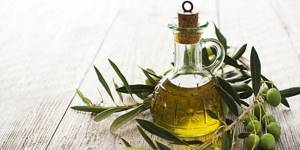
- Sulfonamide drugs - list. Mechanism of action of sulfonamides, use and contraindications
- How to learn to write in beautiful handwriting: calligraphy lesson
- Crochet crop top
Beneficial features
Saturated fats in healthy foods are the main source of energy; they help activate the synthesis of hormones in the body and improve its reproductive function.
Saturated fats improve the absorption of vitamin A and also participate in the synthesis of vitamin D.
If a person leads an active lifestyle: works physically or is an athlete, he needs saturated fats to constantly maintain energy and strength at the proper level. By exposing your body to increased stress, you need to replenish it with missing vegetable fats, which are broken down along with vitamins during physical activity.
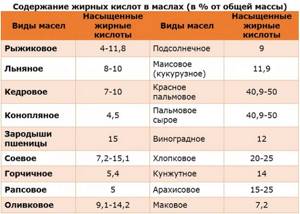
Animal fats are useful for those categories of people whose profession is associated with increased mental stress, for example, teachers, doctors, drivers.
Regular inclusion of butter or ghee in the list of foods consumed helps protect the nervous system from exhaustion, making it healthier. With a balanced diet, the diet must include saturated fats, excluding trans fats.
Adding vegetable and animal fats to your daily menu helps support your immune system. Saturated fats must be supplied to the body in sufficient quantities, which reduces its susceptibility to infectious diseases. As a result, the function of leukocytes in the blood, associated with the identification and destruction of dangerous bacteria, viruses and fungi, is normalized.
Products of animal and plant origin reduce cholesterol in the blood. They are useful for improving skin, hair and nails, and ensure the production of hormones in the body, including testosterone, which is important for active people.
Saturated fats should be regularly present in baby's diet, which will allow the growing body to well absorb calcium, which strengthens bones. Saturated fats, consumed according to the daily norm, prevent heart attacks and strokes, and ensure the prevention of arthritis and arthrosis.
These substances can slow down the process of carbohydrate absorption, which prevents sudden surges in blood sugar and prevents the development of diabetes. Products containing them should be included in the diet of older people, since over time their bones become more fragile.
Sunflower oil during pregnancy
It is important for expectant mothers to properly balance their diet for the full development of the baby. After eliminating many foods, pregnant women often develop problems with the gastrointestinal tract, teeth, hair, and nails deteriorate. Constipation is associated with changes in lifestyle and the rhythm of the body's functioning: low mobility, additional weight, change in diet. In order to normalize the functioning of the gastrointestinal tract, it is recommended to take 2-3 tablespoons of sunflower oil per day (you can simply add it to salads, rather than drink it in its pure form).
Saturation with vitamins A, B and E and additional minerals will improve the condition of nails, hair and teeth. It is important to remember that such a product should be used only in its original form without any heat treatment. In this case, it will help solve cosmetic problems, get rid of constipation and heartburn. The only obstacle to the use of sunflower oil is individual intolerance.
Olive oil
This oil contains the healthiest fats and is an important component of the Mediterranean diet, which has been shown to have numerous health benefits, preventing the development of cardiovascular disease and type 2 diabetes, and preventing the aging process (3, 4). .
Natural unrefined olive oil contains vitamins E and K, and is rich in powerful antioxidants. Some of these antioxidants may fight inflammation and help protect LDL particles in the blood from oxidation (5, 6).
Its consumption has also been shown to be associated with lower blood pressure, improved cholesterol markers, and all sorts of benefits associated with the risk of developing cardiovascular disease (7).
You can learn more about the benefits of olive oil on this page - Olive oil: benefits and harm, how to take it.
Summary:
Unrefined virgin olive oil contains healthy fats and helps prevent heart disease, type 2 diabetes, and inflammation.
List of products with vegetable fats
The current situation in the food industry is such that vegetable fats are present in all products. The greatest controversy is surrounding palm oil, but scientists do not yet know how harmful or beneficial it is. In stores, it is advisable to carefully read the composition of the product so that you can imagine what is inside. Which food products most often contain refined deodorized palm oil:
- spread, margarine;
- freeze-dried foods (instant noodles);
- ice cream, desserts;
- processed cheese, dairy products;
- industrial baking, bakery products;
- ready-made porridges;
- pastry creams;
- products that imitate meat (soy substitutes);
- sweets, chocolate;
- salad dressings;
- fast food of any kind (contains hydrogenated fats).
How to use it correctly?
Not everyone knows what vegetable fat is in foods. After all, not every person reads the ingredients of food before purchasing. But in fact, in addition to the oils that people add to salads and main courses, a lot of vegetable fats are consumed with prepared foods. This is especially true for chips, fast food, ready-made dairy products, and confectionery. Therefore, it turns out that some people consume too much vegetable fat. And since they are mostly hydrogenated in food, they do not benefit, but harm.
In addition, you need to know how to properly consume popular vegetable fats. It is recommended to fry food in refined oil, since undesirable reactions occur during heat treatment in unrefined oil. And for adding to prepared foods and salads, it is better to use natural cold-pressed oil.
Is it possible to eat foods high in fat?
Vegetable fat is not a substitute for animal analogues. Nutritionists, in pursuit of revenue, have seriously intimidated those who monitor their weight and health that a lot of fat is bad. In fact, it is important to eat a healthy and balanced diet. Even foods saturated with fats are not harmful if they are compensated by a healthy lifestyle and natural products. The problem with losing weight is the carbohydrates, not the fats. Restrictions on the use of natural oils occur only in case of personal intolerance in a particular person.
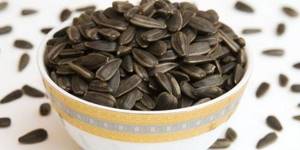
Combination rules
Vegetable fats, the list of foods containing which should include vegetables and herbs, help mitigate the negative effects of saturated fats on the body. For example, as a result of their digestion by the body in the form of meat and fish, an iron molecule is formed, which is characterized by carcinogenic properties.
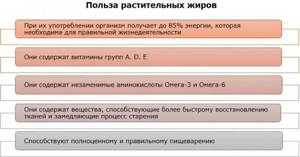
Vegetable fats and a list of animal products are important to consider when creating a balanced diet.
Chlorophyll, which is part of leafy vegetable crops, allows them to be softened and neutralized:
- parsley;
- sorrel;
- cilantro;
- dill;
- basilica;
- spinach;
- salad
Eggs and cottage cheese are difficult to digest foods that are best eaten in small quantities. Fermented dairy products, such as kefir or yogurt, are useful. The protein found in meat and eggs requires different levels of gastric juice for digestion.
This prevents the normal absorption of these products when consumed at the same time. For the same reason, you should not eat cheese and eggs together, which can be eaten separately with greens.
When consuming dairy products, the body produces the hormone melatonin, which improves sleep, so they are included in the evening menu. The burning of dairy and meat products during processing in the body does not occur immediately, unlike fruits.
Butter and sour cream, which are easier for the body to absorb, can be consumed with legumes, but these dairy products should be present in the diet in limited quantities.
Saturated fats typically come from foods that are very high in protein rather than carbohydrates. At the same time, the stomach produces an acidic environment, which, under conditions of a normal diet, must be balanced with an alkaline one. The latter is necessary for the processing of carbohydrates.
It is better not to combine milk with any foods, but to drink it separately. In the stomach, it coagulates under the influence of the secreted acidic juice. If there is other food in it, then the milk interferes with digestion, and it begins to rot while the digestion process is delayed.
Before cooking, fat must be removed from meat. This product is best consumed with vegetables that do not contain starch. If you combine meat dishes with alcohol, it blocks the production of pepsin in the body, which is necessary for the stomach to digest protein foods.
Contraindications
It is not recommended to eat unrefined oil after improper storage or heat treatment: during the frying process, the constituent substances are modified into trans fats (it is better to prepare salads based on it). Vegetable fats in large quantities are contraindicated for those suffering from cholelithiasis. If you have regular diarrhea, the oil should be limited due to its stable laxative effect. If a person decides to replace animal oils with vegetable oils, one should consult a gastroenterologist and nutritionist.
